My parents hail from Pittsburgh, Pennsylvania, so I recall visiting Horne’s Department Store when I was younger. Joseph Horne (no relation to Ben or Jerry) started his self-named department store in 1849 and quickly built a large building in downtown Pittsburgh in 1879. Eventually, Horne’s was purchased by Federated Department Stores and the Horne’s name was replaced with Lazarus. But these western Pennsylvania stores had nothing to do with the Horne’s Department Store found in the first season of Twin Peaks. The location’s exterior, shot in a historic area of downtown Seattle, appears in only two episodes – 1.005 and 1.006. But did you know that this building has a connection to Snoqualmie Falls in Snoqualmie, Washington, the location that served for White Tail Falls from the series? Let’s explore this Washington State film location.
WHERE IS HORNE’S DEPARTMENT STORE LOCATED IN TWIN PEAKS?
According to the map on the inside cover of the “Twin Peaks Access Guide to the Town,” Horne’s Department Store was located at the corner of Snow Street and Maple Street.
Page 97 of the Access Guide describes the store:
“While our climate affects the type of apparel Peakers don, there is a strong tradition of aesthetics involved in our choices, too. This can be seen in the wide variety of fashionable but good items available at Horne’s Department Store on Highway J. From sensible blouses of cotton and silk in a variety of colors for women of discriminating taste to the rich and nubbly plaid wool shirts for our virile men, Horne’s is a one-stop shopping center in our community. Also of interest is the perfume counter on the ground floor where international scents mingle.”
WHERE IS HORNE’S DEPARTMENT STORE EXTERIOR LOCATED IN SEATTLE?
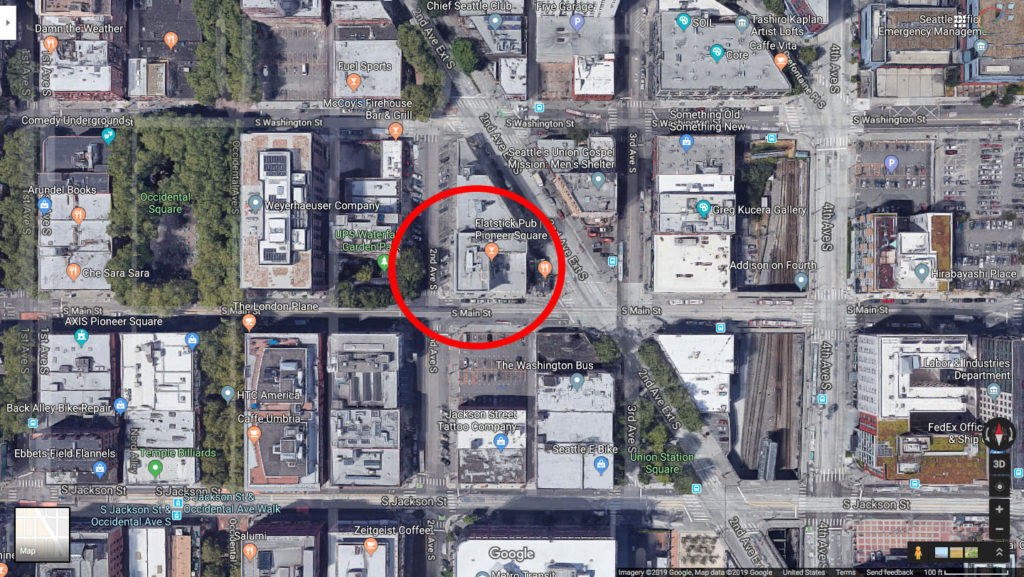
In reality, this building exterior is located around 212 Second Avenue South in the Pioneer Square Preservation District in downtown Seattle, Washington.
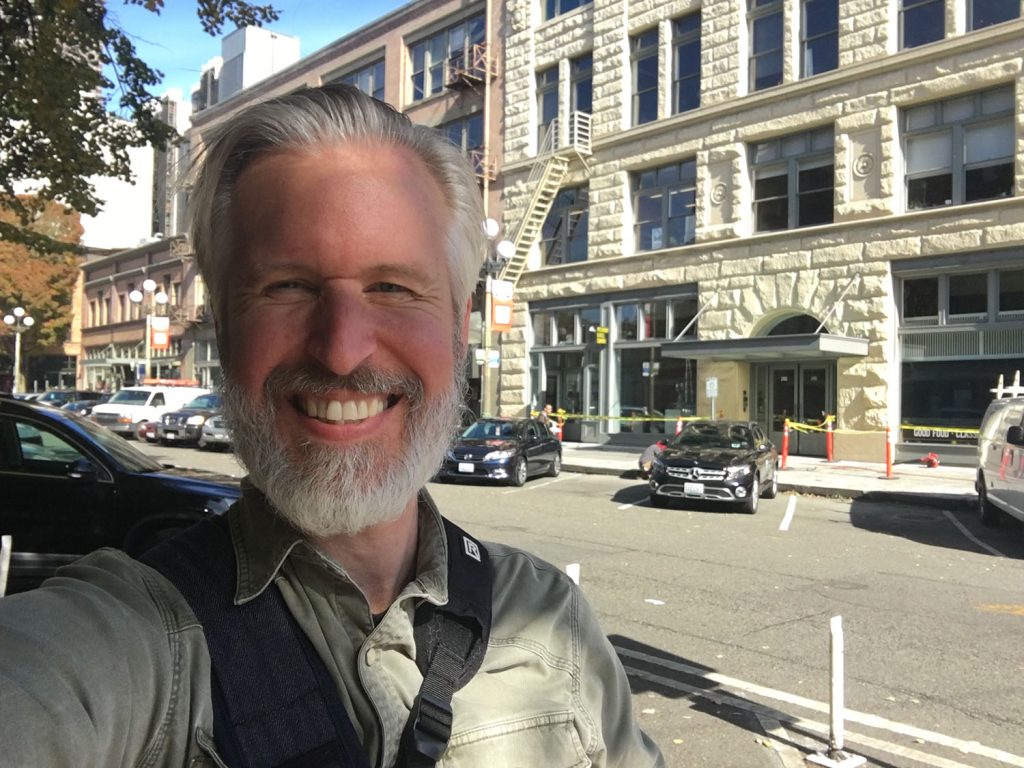
I first visited this location on October 11, 2019. At the time, there was construction taking place outside the first floor entrance.
PIONEER SQUARE PRESERVATION DISTRICT
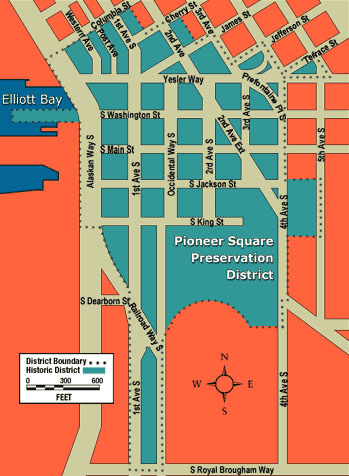
According to Seattle.gov, Pioneer Square was “chosen by the first permanent white settlers in 1852 as the location of their new city because it was the only flat area along the deep, protected harbor on Elliott Bay.” A fire destroyed 25 blocks of the City’s central core on June 6, 1889. This prompted the Seattle City Council to require buildings to “be constructed of fire-resistant brick and stone.”
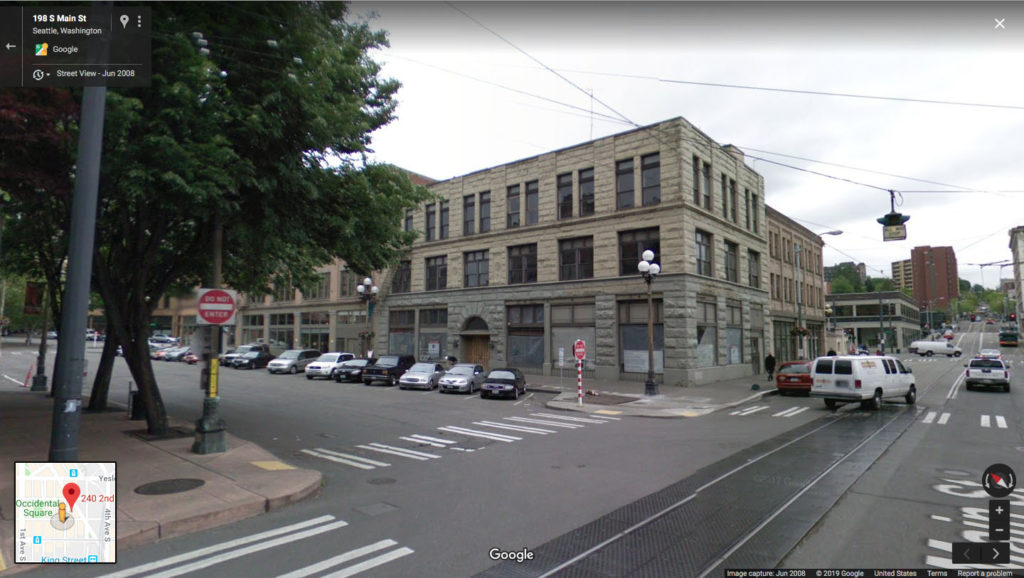
This explains the Richardsonian Romanesque architectural style of this building which was popular in Chicago and along the East Coast at the time. This style includes a “heavy masonry base, use of the Roman arch, and varied architectural details on each floor.”
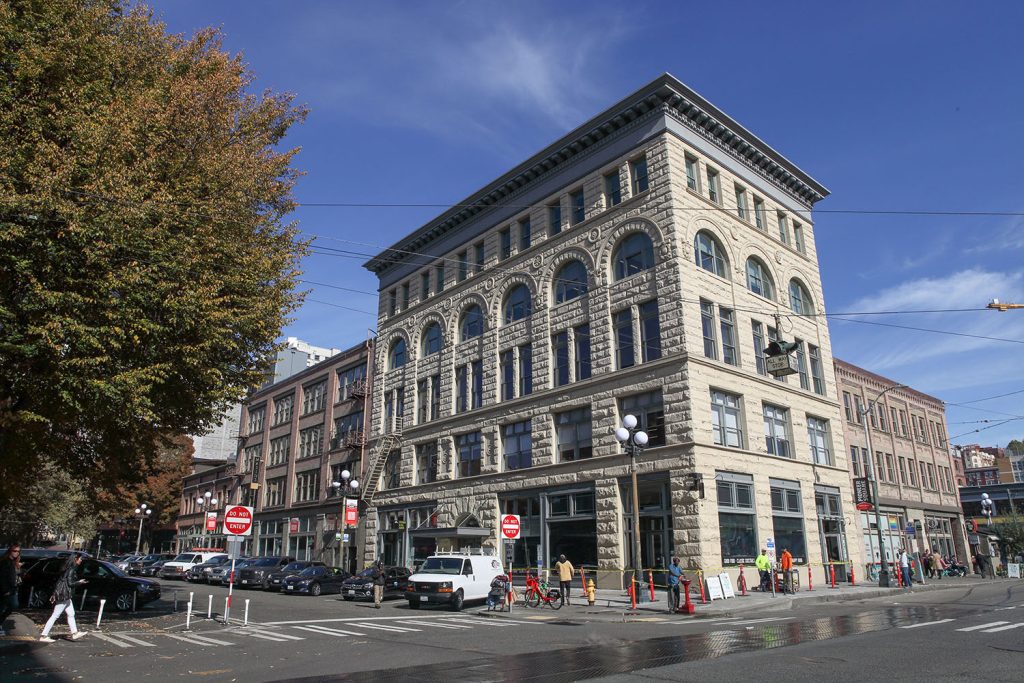
Beginning in the middle part of the 20th century, Pioneer Square eventually became a rather seedy part of town. Luckily, in the 1970s, a grass-roots movement helped designate the area as a national historic district. This lead to redevelopment and preservation in the square.
HISTORY OF THE BAKER BUILDING
While researching this article, I stumbled upon an outstanding article from Bob Royer published on March 16, 2014.
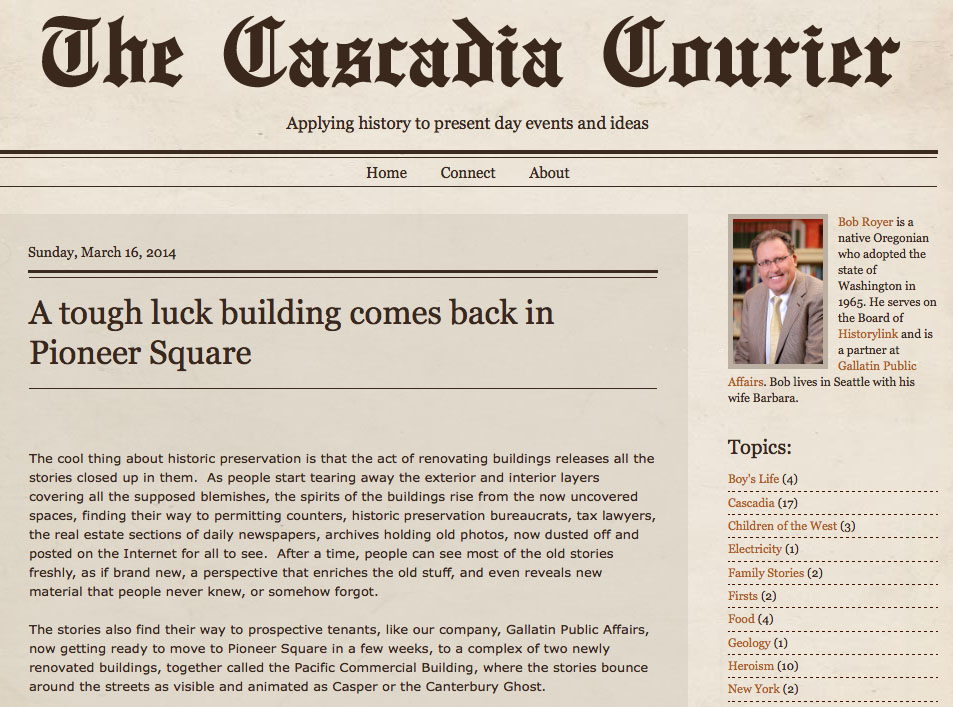
Bob, who worked for Gallatin Public Affairs, shared the history of this building as his company was moving into the location at the time (they have since moved offices in downtown Seattle).
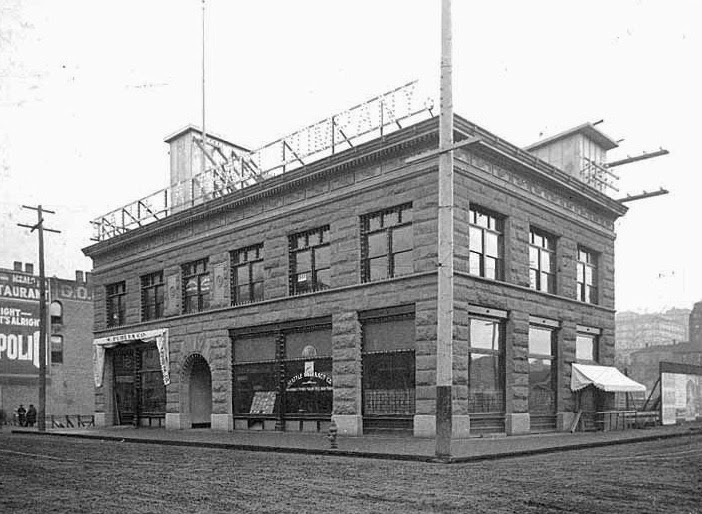
According to Royer’s article, the Baker Building was constructed in 1900 by Charles H. Baker, president of the Seattle Cataract Company and built for the Snoqualmie Falls Power Company, both of which he owned (!!). Baker, a civil engineer, would also plat the town that became Snoqualmie.
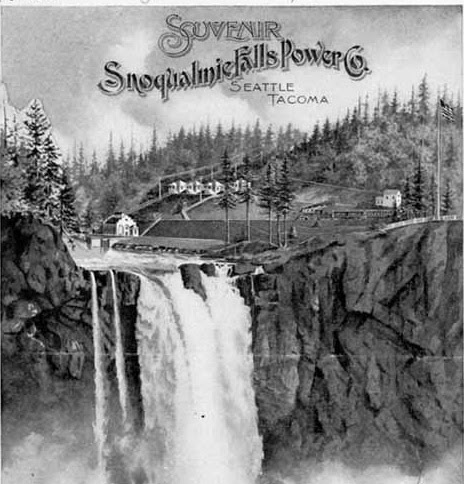
Baker created the first underground generating station in the world at Snoqualmie Falls. The two story Baker building in downtown Seattle was “an electrical substation that would receive the power generated at the falls and distribute it to the growing fleet of street cars in Seattle and Tacoma and ultimately to businesses and homes.”
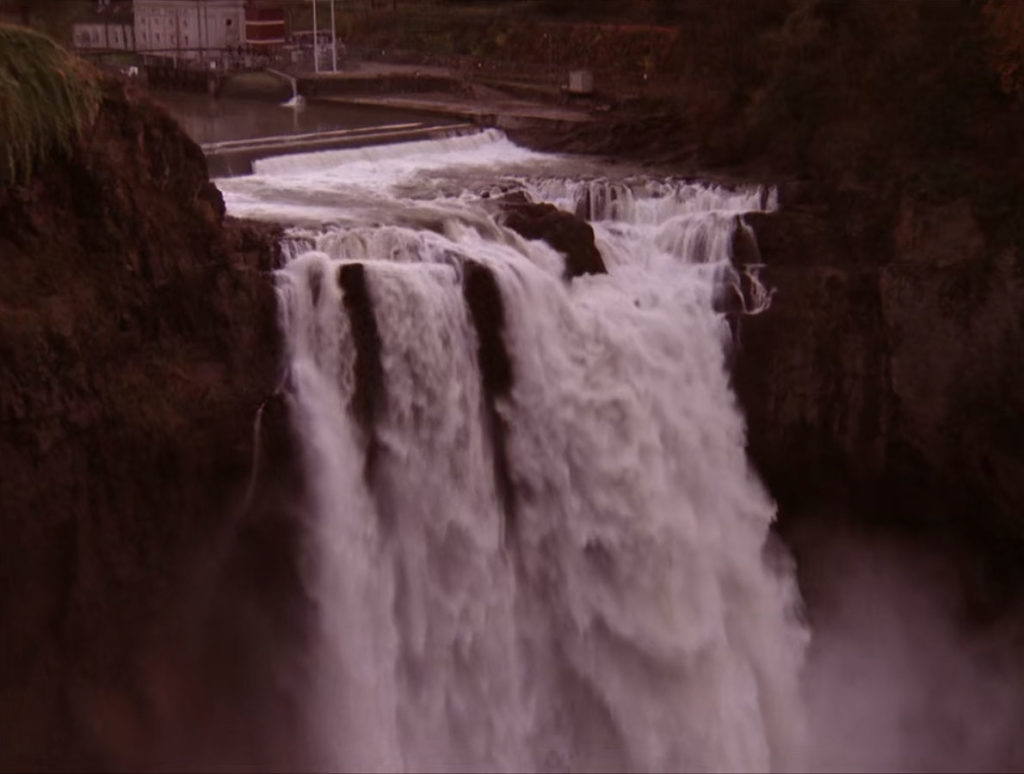
Of course, we know Snoqualmie Falls as White Tail Falls that appeared in all three seasons of Twin Peaks. Part of a second powerhouse created at the falls can be seen in the opening credits for Season 3.
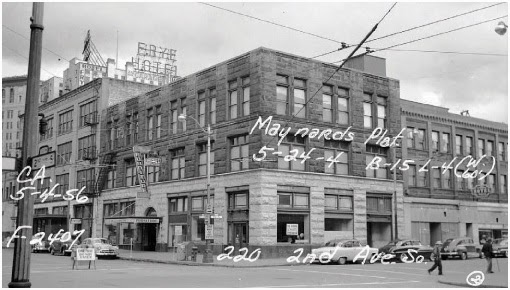
In February 1903, Baker announced that he was turning the substation building into an office building and planned to add three floors. Shortly after his announcement, the Snoqualmie generating plant was destroyed in a fire and Baker’s father died leaving him unable to pay loans for the building and other investments. In 1906, timber baron George Stetson purchased the now five-story Baker Building.
The building changed hands again when Japanese businessman and tenant in the Baker Building, Masajiro Furuya, purchased it from Stetson in 1917. It was sold again to the Masin family in 1948. A powerful earthquake in 1949 destroyed the top two floors which were subsequently removed from the building. Royer noted in his article, “In 50 years, the building had gone from two floors to five floors and now back to three.”
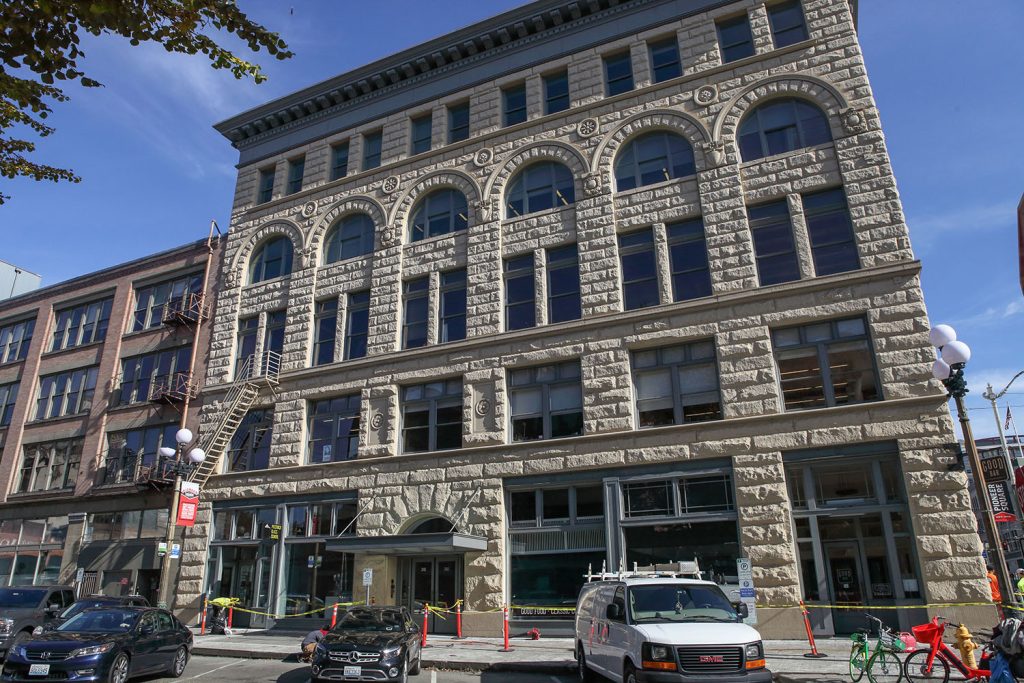
Royer continued, “The Masins sold the building in 2007 to a young Spokane developer, Rob Brewster and his partner, entrepreneur Michael Goldfarb. Their plan was to add back the two stories…”
But everything stopped in 2010 due to the economic and bank crisis in the United States and the death of Mr. Goldfarb. Brewster finally received money in 2013 to complete the project.
This brings us to the on screen appearances from Episodes 1005 and 1006.
HORNE’S DEPARTMENT STORE EXTERIOR IN EPISODE 1.005
The first appearance is an establishing shot in episode 1.005. A Twin Peaks Sheriff’s Department car drives by the building front.
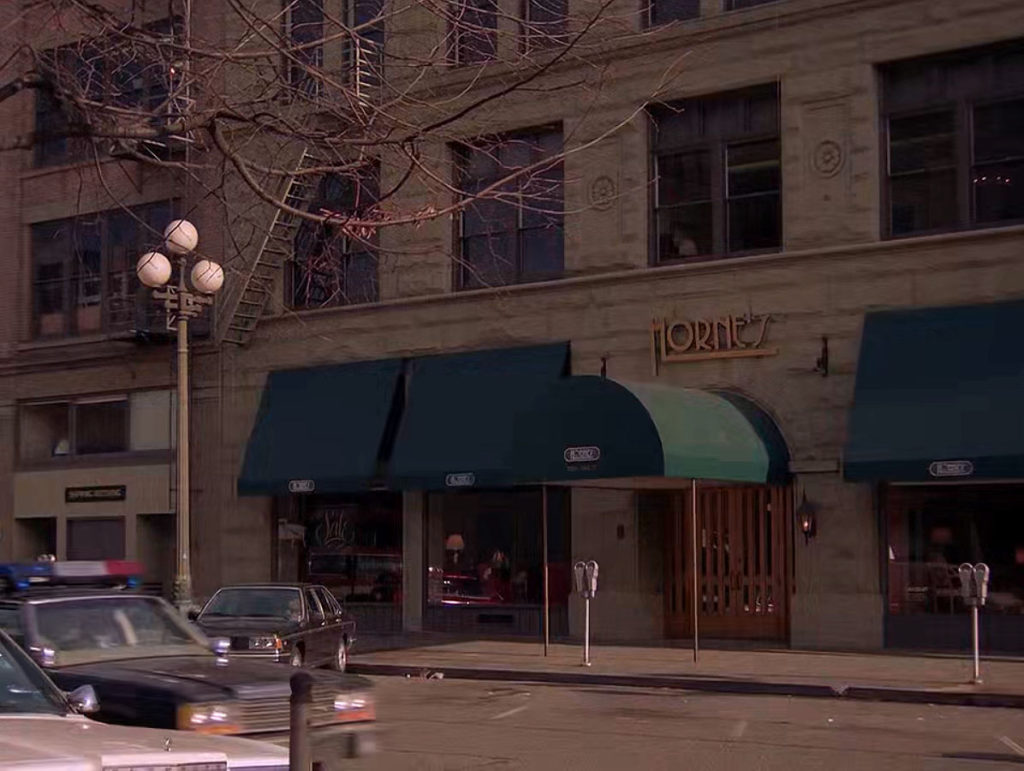
The script for this episode was written by Mark Frost. This establishing shot opens Act Two and the script page had a revision on November 8, 1989 (it was a yellow page).
ACT TWO
FADE IN:
11. EXT. HORNE’S DEPARTMENT STORE – DAY
Establish. A sign on an old, granite facade.
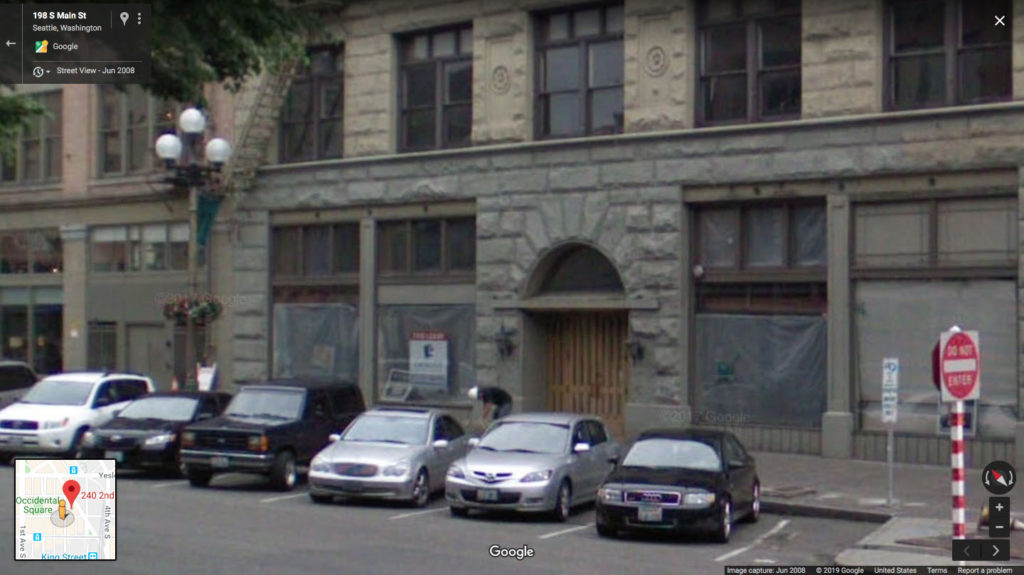
A similar view of the front from Google Maps in 2008.
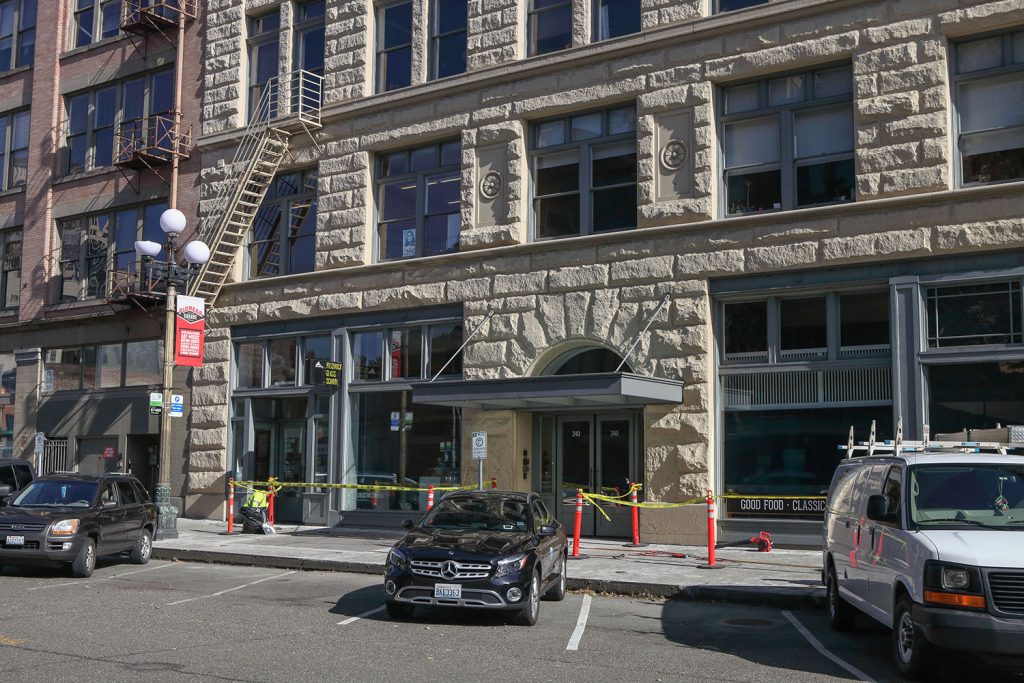
Here is the same view from my visit in October. The brief establishing shot in episode 1.005 continues below.
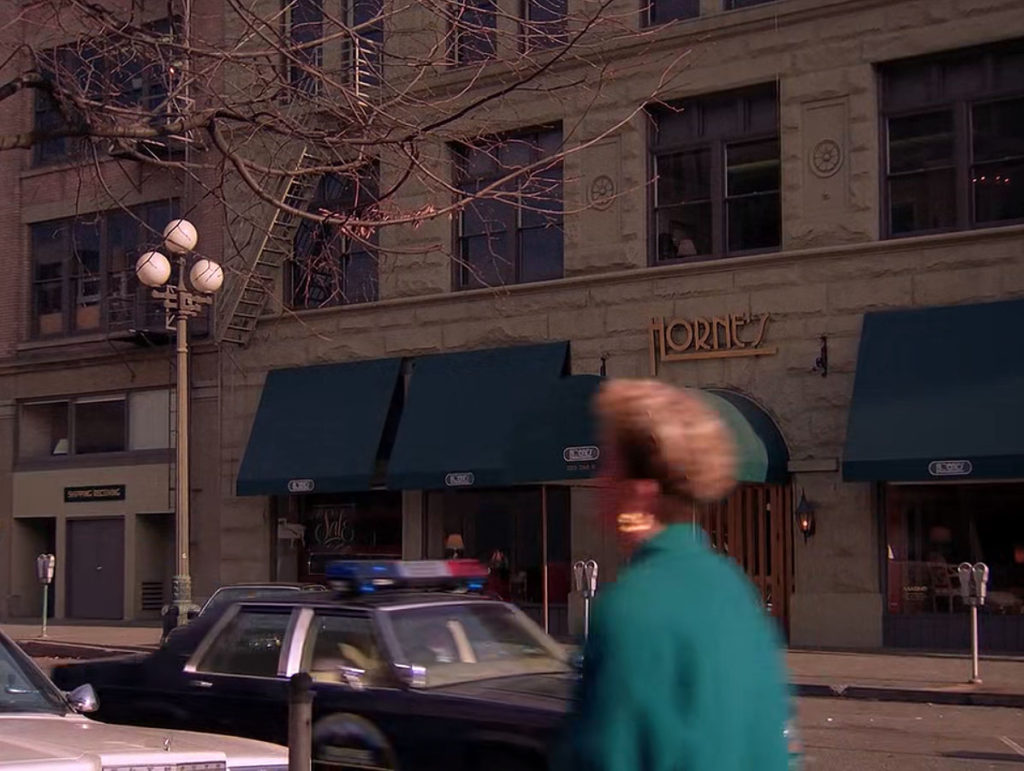
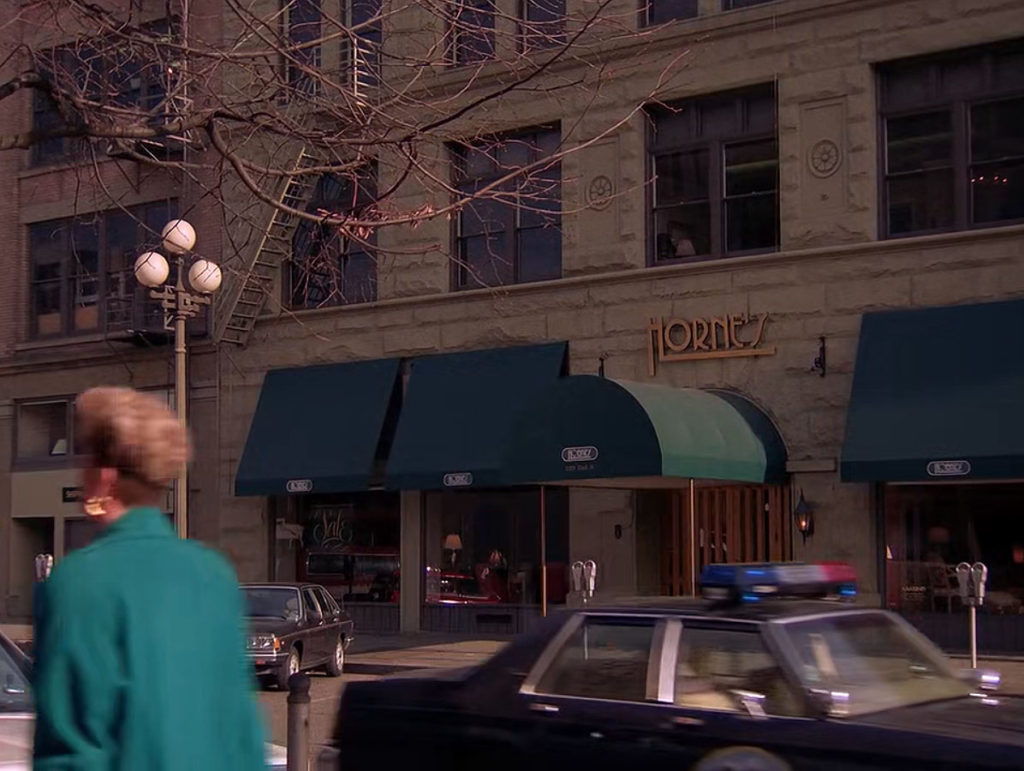
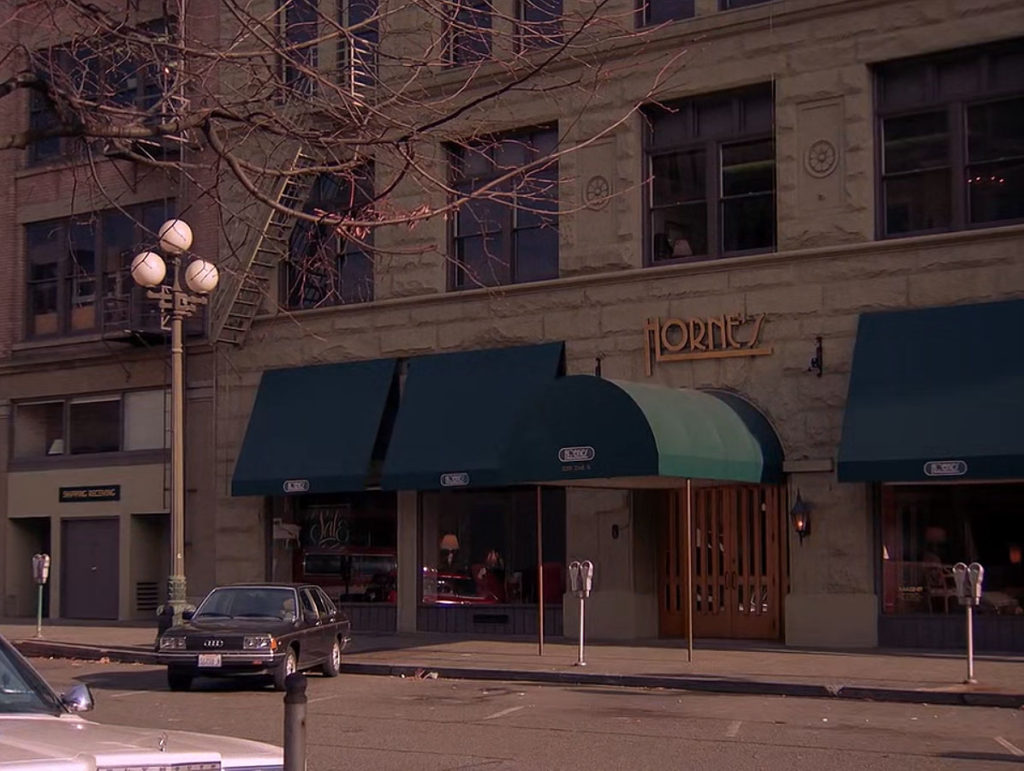
As the Twin Peaks Sheriff’s Department squad car passes, a woman dressed in 1980s fashion walks by. I wonder who she was and where she is today.
HORNE’S DEPARTMENT STORE EXTERIOR IN EPISODE 1.006
Harley Peyton wrote the script for episode 1.006. Again, the Horne’s Department Store establishing shot opens Act Two. It was presented on a blue page dated November 8, 1989
ACT TWO
FADE IN:
8. EXT. HORNE’S DEPARTMENT STORE – DAY
Establish. The rather stolid department store, hub of local commerce.
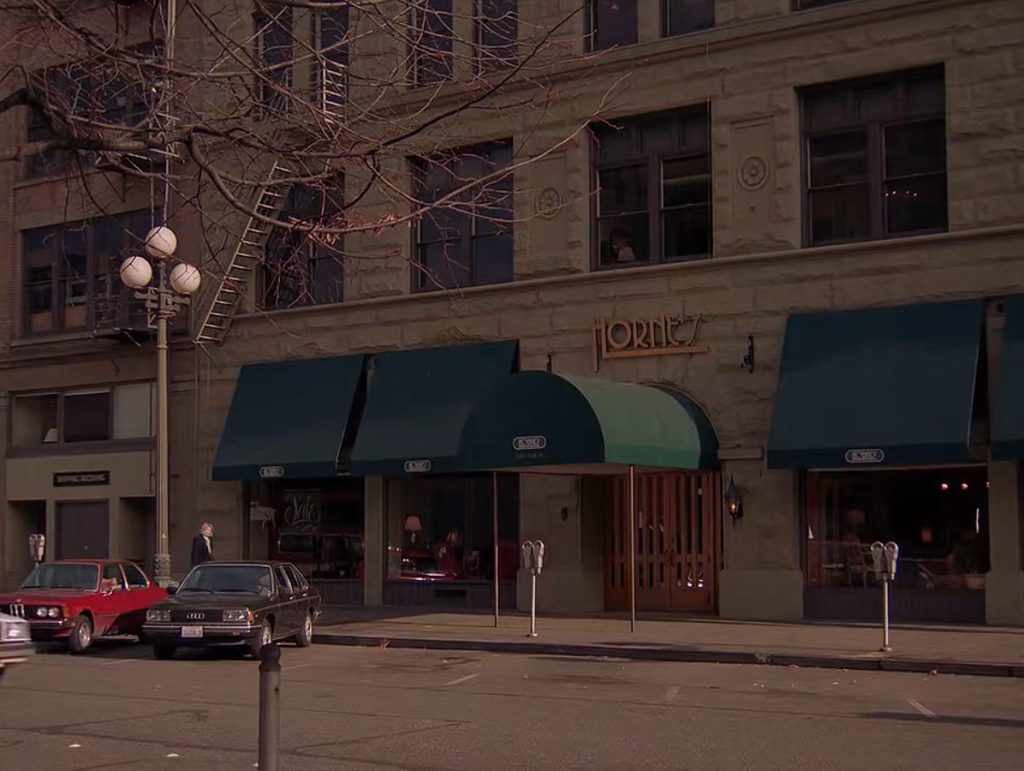
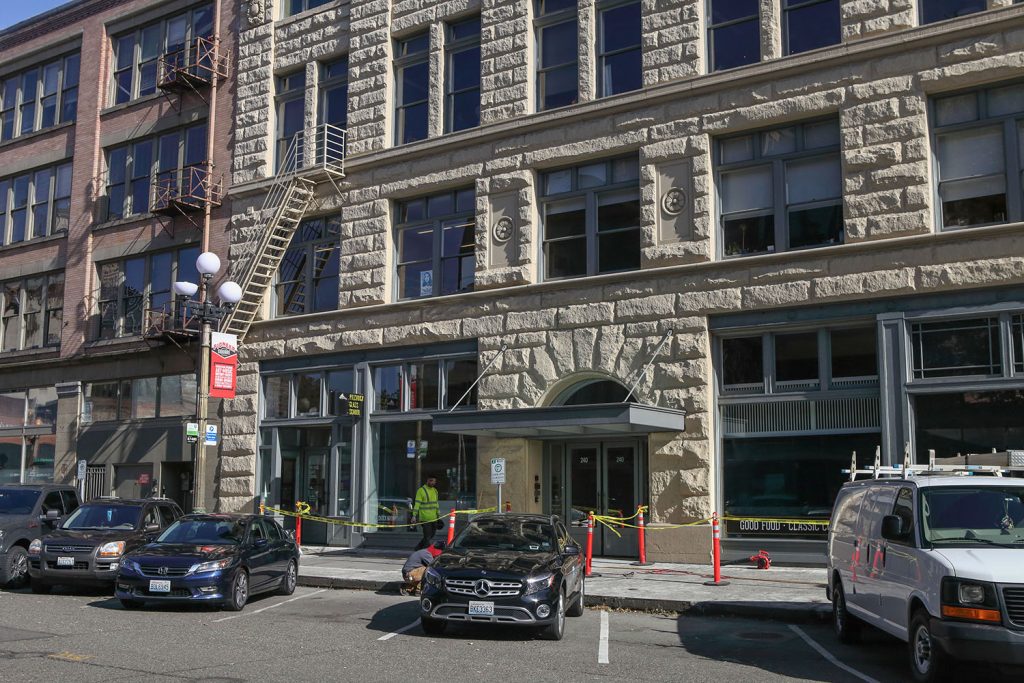
Notice the 1980 Audi 5000 is still parked in the same spot as episode 1.005 but a red BMW has been added.
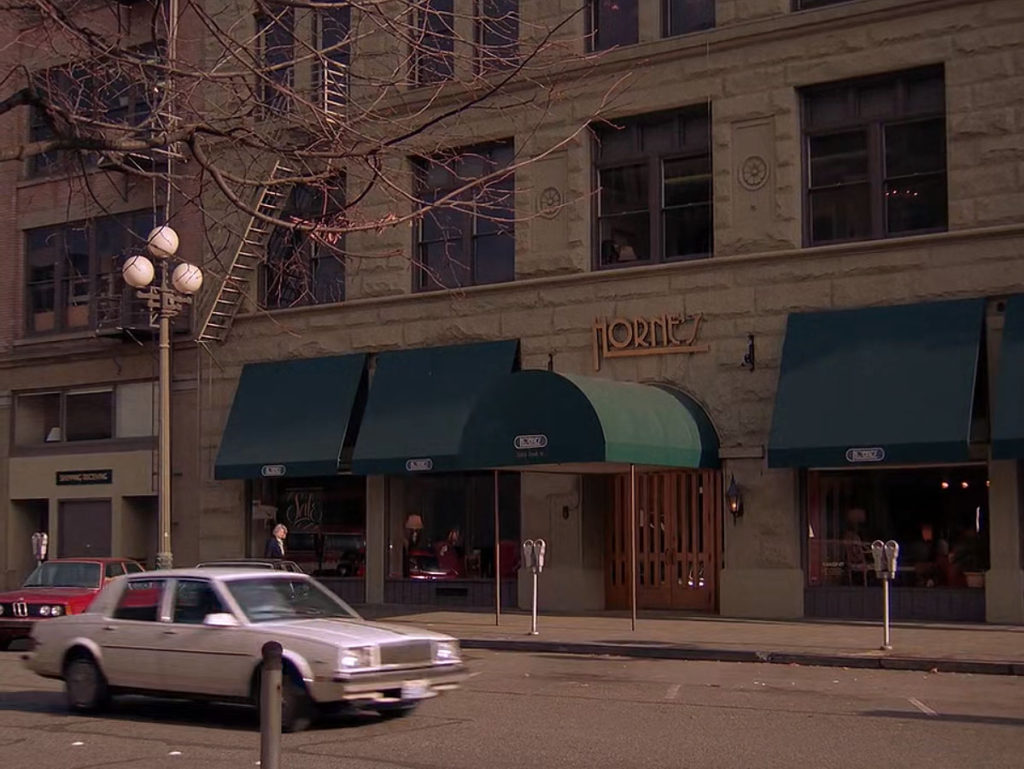
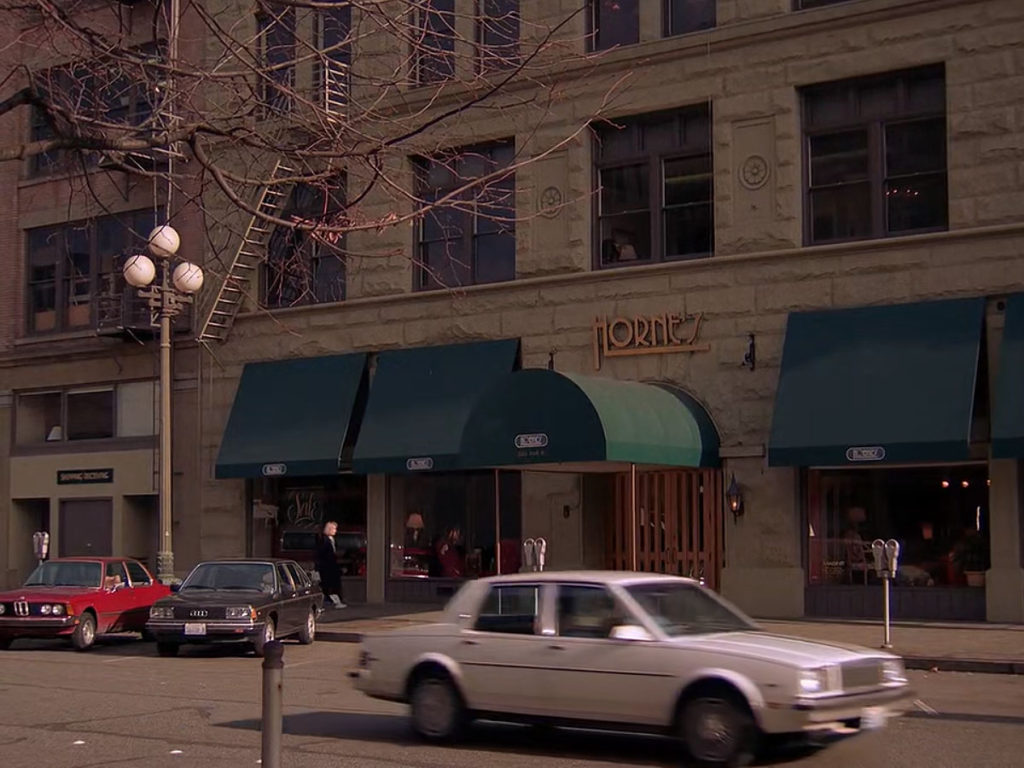
A white 1983 Buick Skylark drives by Horne’s.
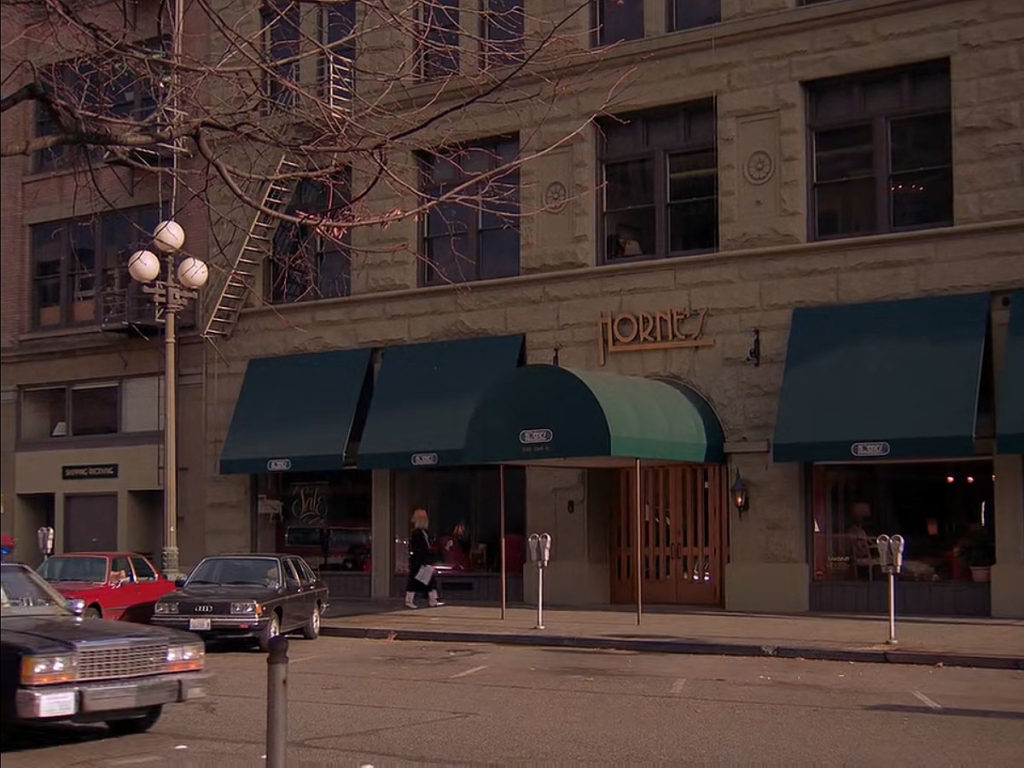
Just before the scene cuts to an interior set, we catch a glimpse of a Twin Peaks Sheriff’s Department car.
FLICKR GALLERY FOR HORNE’S DEPARTMENT STORE
You can find high-resolution images of the Horne’s Department Store exterior on my Flickr account. The photos are licensed as Creative Commons, so only attribution to “Sam Howzit” is required for use elsewhere.
INTWINPEAKS.COM
I have to salute Travis Blue and Charles from InTwinPeaks.com again who originally posted about this location in the late 2000s. Below is a screen shot from the original posting with images from 2008 and 2010 (click to enlarge).
Discover more from TWIN PEAKS BLOG
Subscribe to get the latest posts sent to your email.

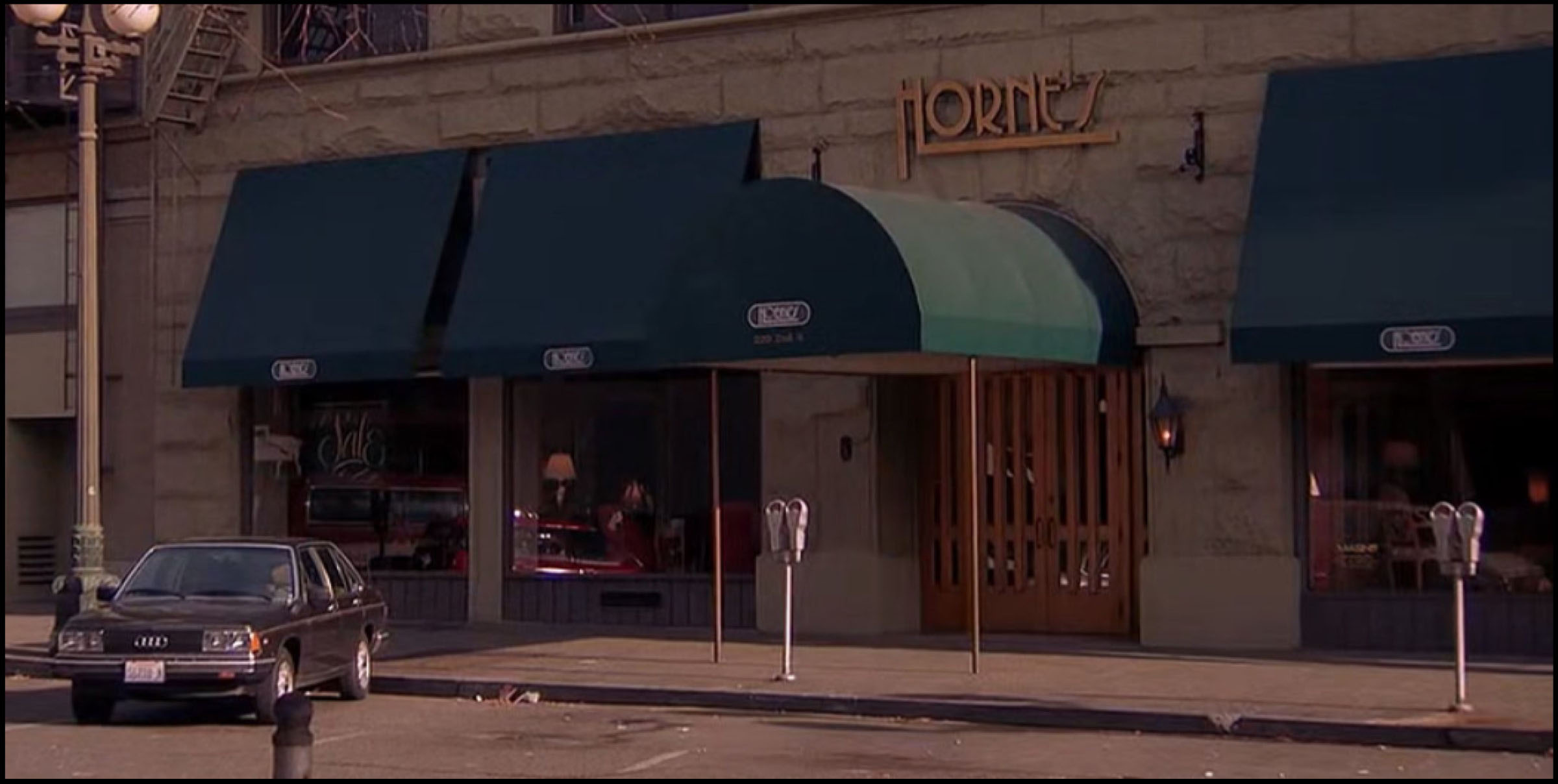

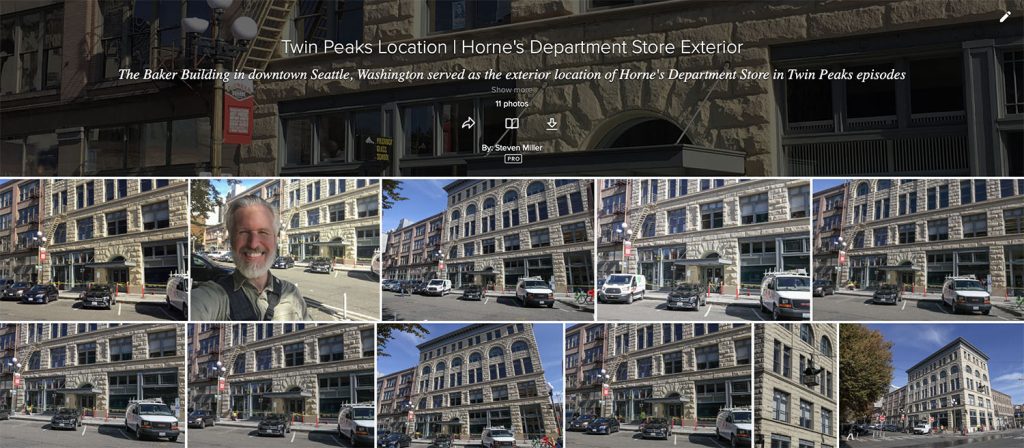
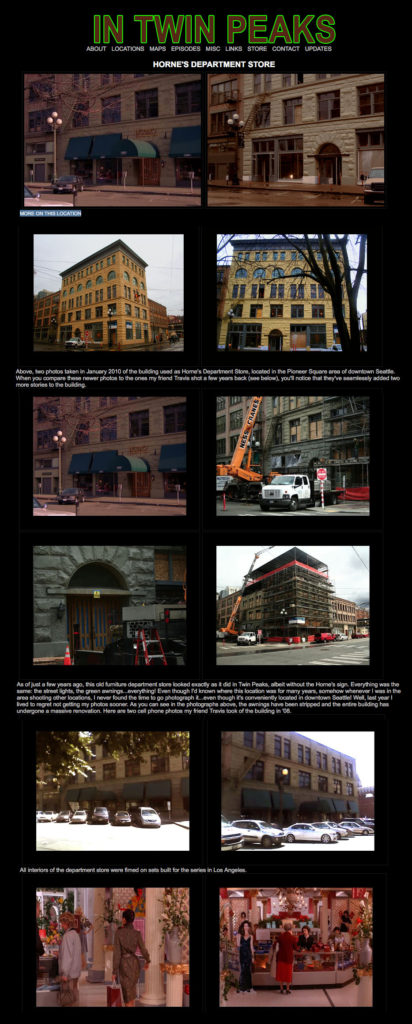
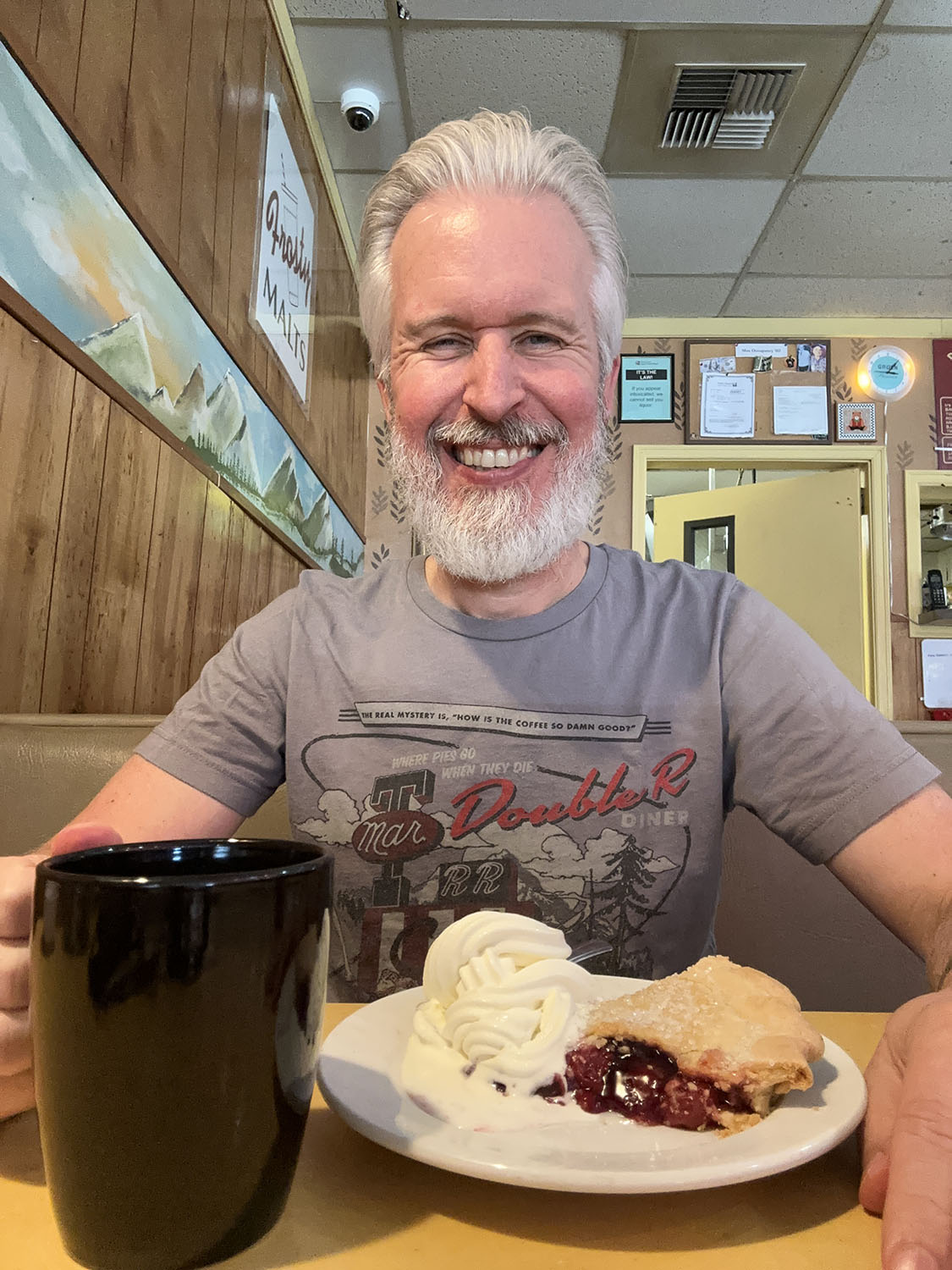
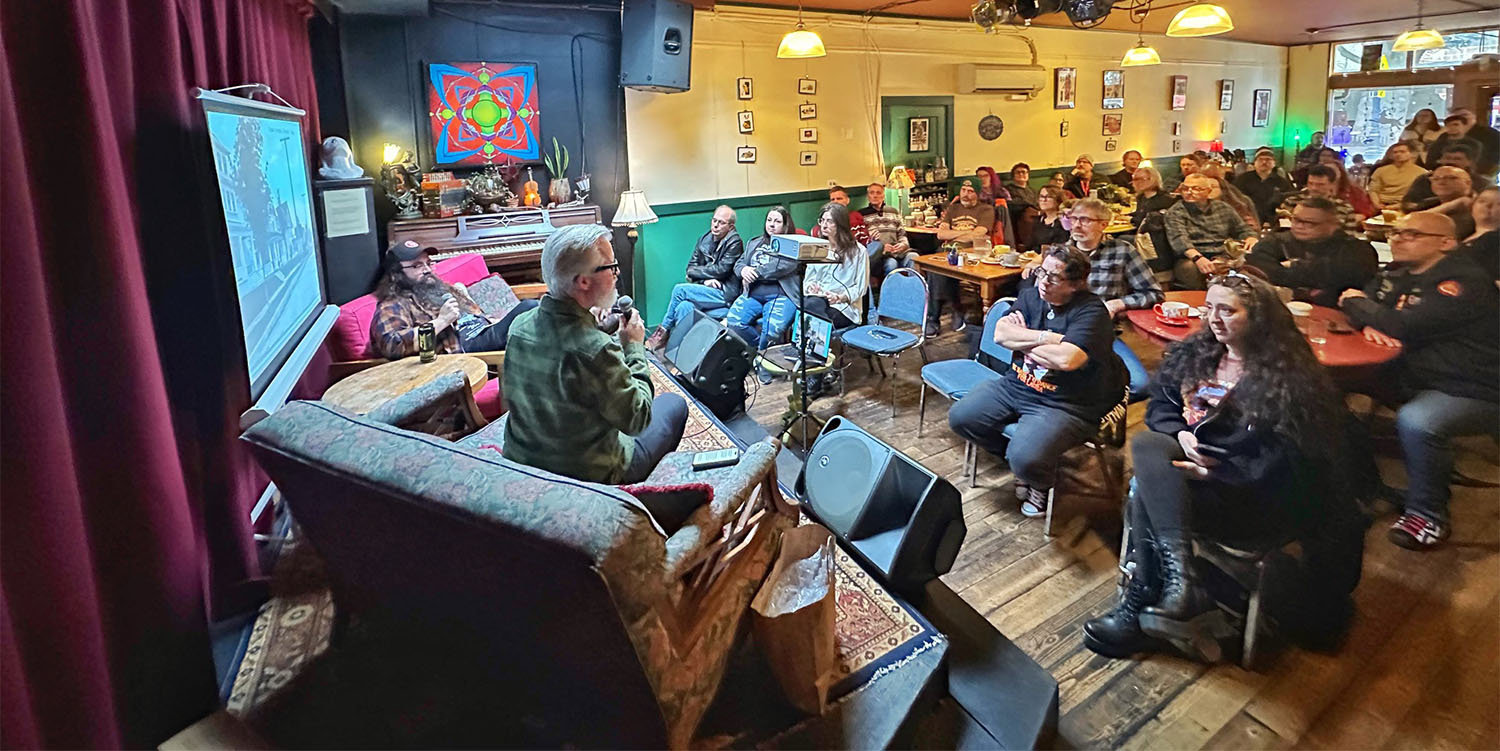
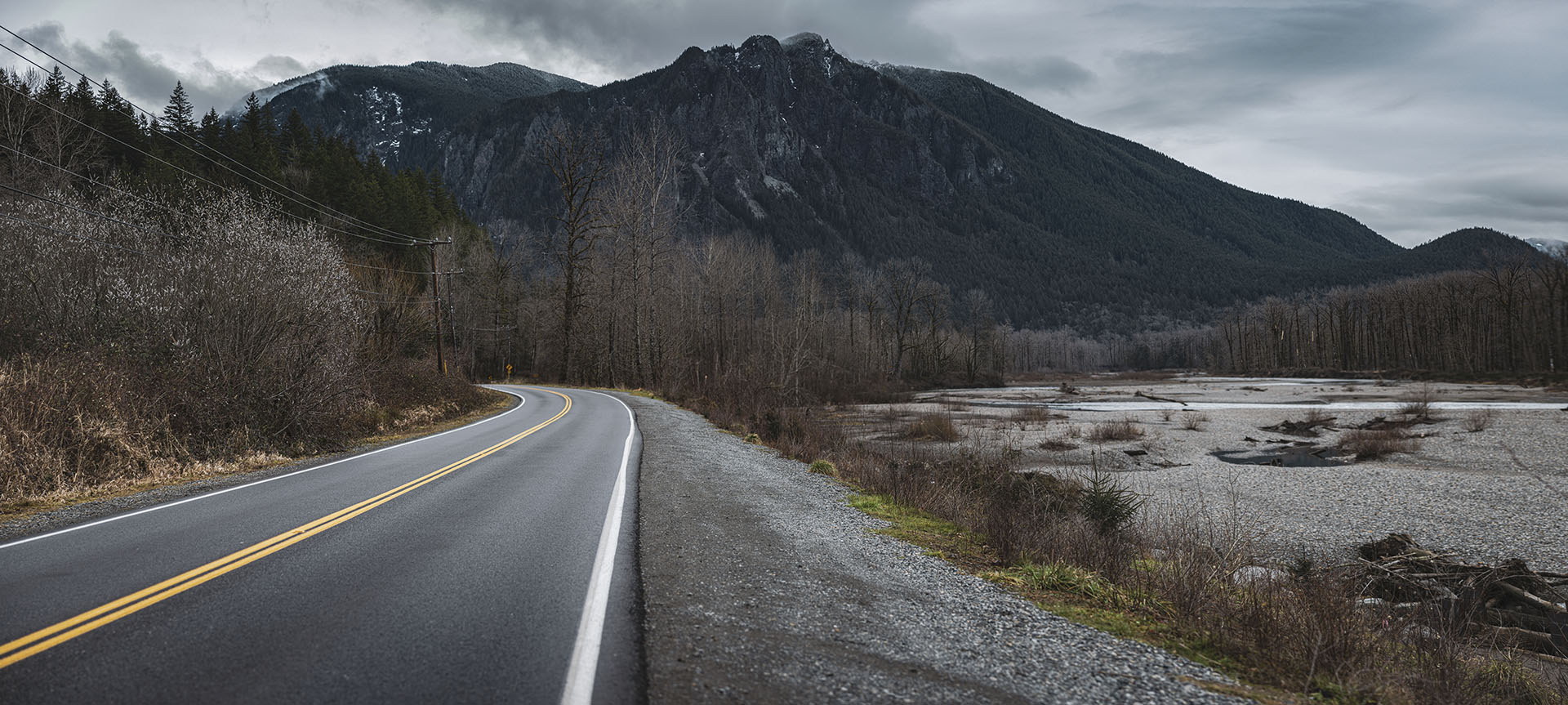
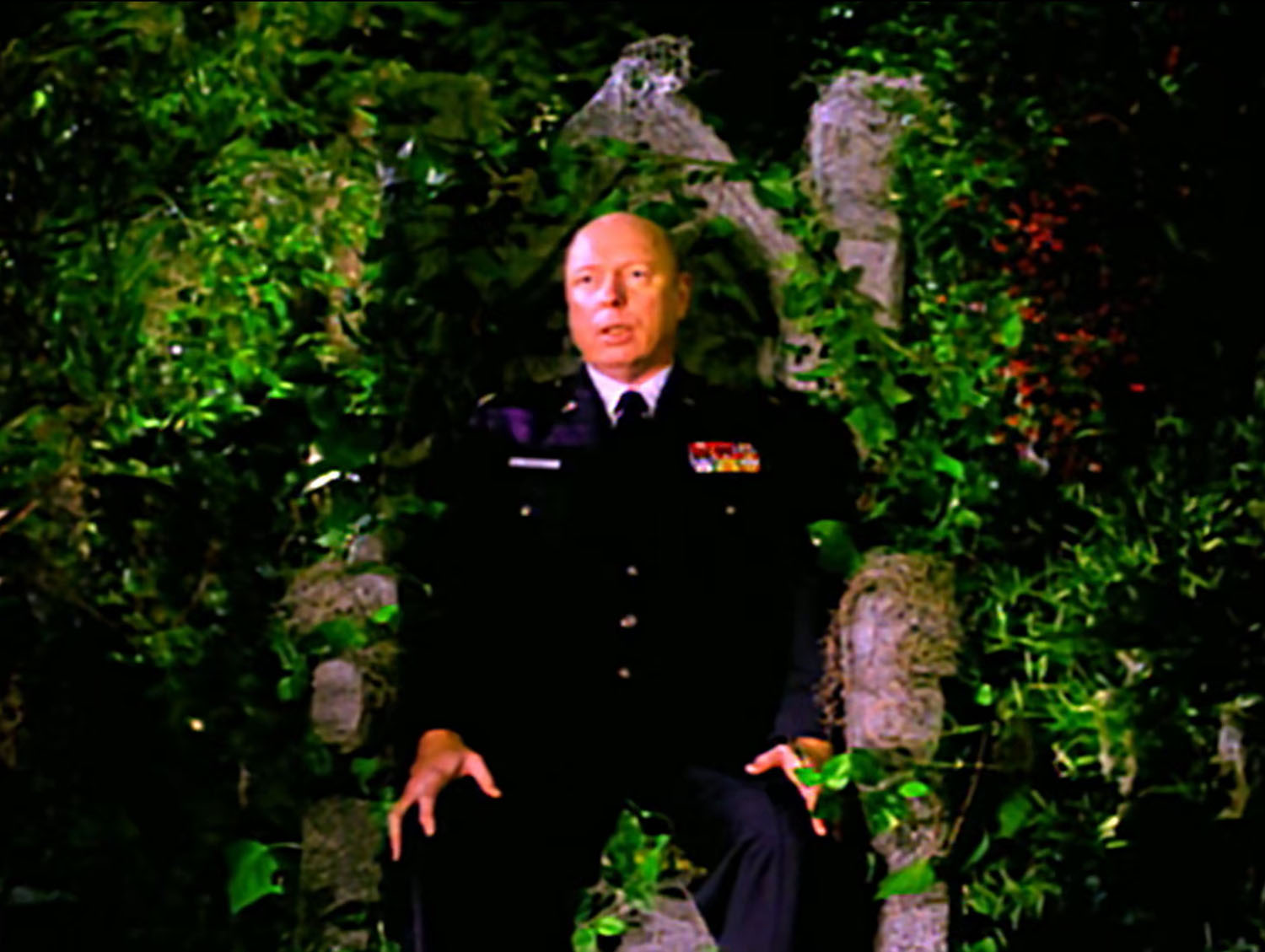
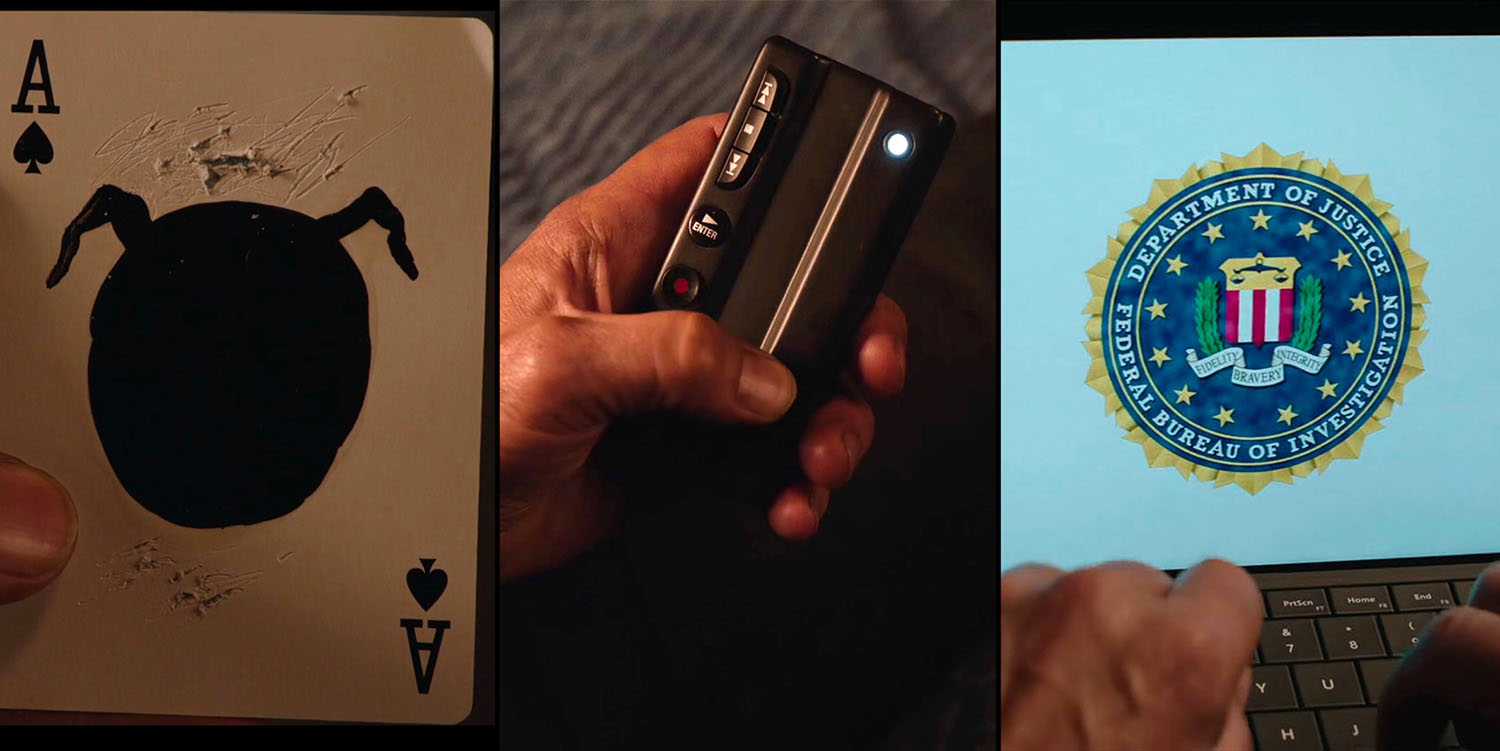
This is amazing! How do you dig up this stuff? It blows my mind that the building that was used to represent Horne’s Department Store was linked to the electricity generated by the Falls.